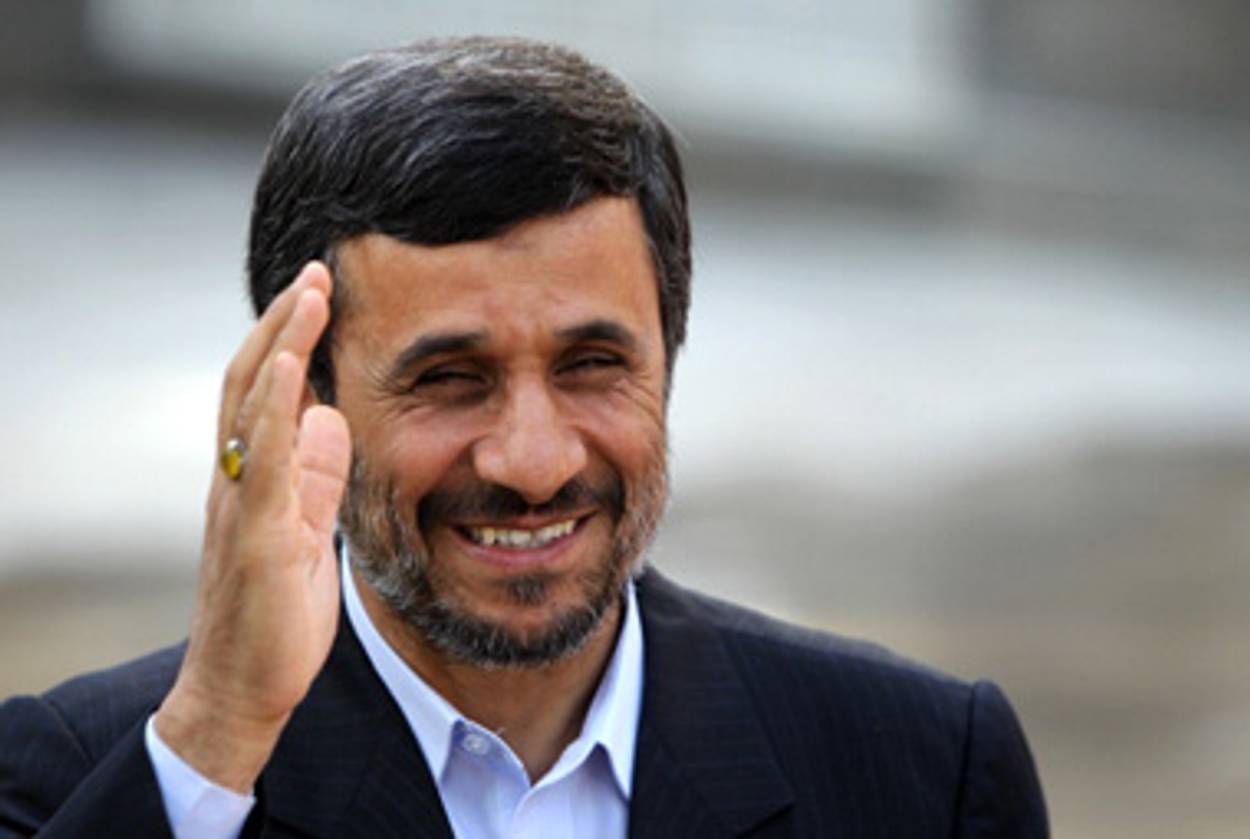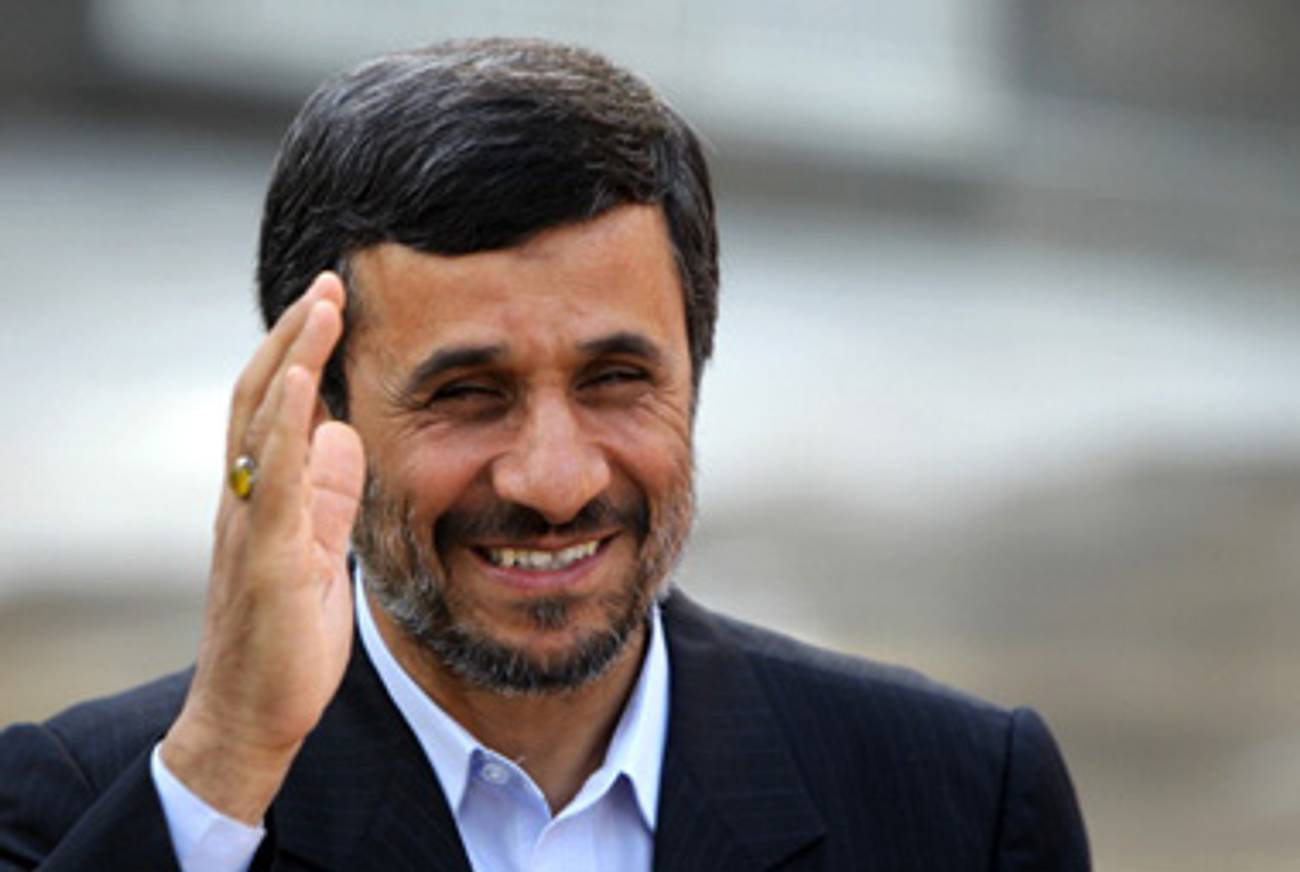U.N. Indictments Threaten Mideast Chaos
But urgency on Iran cuts both ways




What will spark the Iranian powder keg? Perhaps Israeli and/or American military action: Prime Minister Netanayahu was reportedly planning to tell Vice President Biden that only a credible military campaign will head off Iran’s nuclear weapons program. (The American response? Sanctions are working and enough.) It could be frustration with continued obfuscation on talks: After seemingly agreeing to finally sit down with the West, the Islamic Republic is now proposing talks in Turkey, which smacks of Iran, Turkey, and Brazil’s earlier proposal to strike a deal wherein Turkey, rather than Russia, facilitates a nuclear fuel swap (a deal opposed by AIPAC and J Street alike); it is also a provocation to Turkey’s ally-turned-rival Israel.
My bet, however, is that the most dangerous moment we have yet seen will come next month, when the United Nations tribunal investigating the 2005 assassination of former Lebanese Prime Minister Rafik Hariri is expected to indict several members of Hezbollah, Iran’s chief Lebanese proxy. If/when that happens, Hezbollah may attempt what amounts to a coup (although given how much power it already has, perhaps that is too strong a word). “Washington has organized a coalition, including Russia, to support the tribunal’s work,” reports Washington Post columnist David Ignatius. “If indictments are issued, Hezbollah may move to topple the Lebanese government—creating a new showdown. How the United States and Israel would respond isn’t clear, but their options would be limited.” It is plausible to see Israel dragged into this showdown and then Iran, too.
So is there also cause for optimism?
Yes, in two different ways. One is that, as many have observed, including Tablet Magazine contributing editors David Samuels and Jeffrey Goldberg, the more threatening Iran gets, the more clear become the benefits of Israeli-Palestinian peace to all parties that are not Iran or direct Iran allies.
The other is that the sanctions against Iran—both the Security Council-approved ones and the much sharper, bilateral ones imposed by various Western countries—are having real bite, substantially lowering the quality of life inside Iran and thereby putting the current regime of President Ahmadinejad—which is of questionable legitimacy already—in that much more difficult a spot domestically.
How will Ahmadinejad respond to decreasing support at home? Well, his weakness could plausibly prompt him to take a more moderate path, and agree to real talks and a real deal. It could also plausiby prompt him to take a more extreme path. Ignatius called his column “Obama’s Game of Nuclear Chicken with Iran,” and that really is right: Both sides have cause to blink; the question is, which will first?
U.N. Indictments Near in Lebanon Killing [WSJ]
Obama’s Game of Nuclear Chicken With Iran [WP]
U.S. Says Sanctions Against Iran Are Working [Reuters]
Iran’s Middle Class to be Hard Hit as Subsidy Program Is Overhauled [WP]
Netanyahu To Tell Biden: Only Military Threat Can Stop Iran [Haaretz]
Iran Could Ignite Israeli-Palestinian Agreement [JPost]
Iran Pushes for Nuclear Talks in Turkey [LAT]
Related: Cinders of Lebanon [Tablet Magazine]
The Next Lebanon War
Earlier: Iran Dangles Prospect of Talks
Marc Tracy is a staff writer at The New Republic, and was previously a staff writer at Tablet. He tweets @marcatracy.